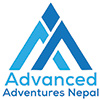Nepal FAQ's

Traveling to Nepal is an exciting adventure, but it often comes with many questions, especially for first-time visitors. Below are some of the most frequently asked questions (FAQs) about traveling to Nepal:
1. Do I need a visa to travel to Nepal?
Yes, most international travellers require a visa to enter Nepal. You can obtain a visa on arrival at Tribhuvan International Airport in Kathmandu or at land border crossings. Alternatively, you can apply for a visa at a Nepalese embassy or diplomatic mission before your trip.
2. How much does a Nepal visa cost?
The visa fees are as follows:
• 15-Day Visa: US$ 30
• 30-Day Visa: US$ 50
• 90-Day Visa: US$ 125
Some nationalities and categories (e.g., children under 10, SAARC citizens, Chinese nationals) are eligible for a gratis (free) visa.
3. What is the best time to visit Nepal?
The best time to visit Nepal is during the autumn (September to December) and spring (March to May) seasons. These months offer clear skies, pleasant weather, and excellent conditions for trekking, sightseeing, and outdoor activities.
4. Do I need any vaccinations before traveling to Nepal?
While no specific vaccinations are mandatory for entry, it is recommended to be vaccinated for Hepatitis A, Typhoid, Tetanus, and Yellow Fever (if arriving from a country with a risk of yellow fever transmission). Consult your doctor for personalized advice.
5. Is Nepal safe for travellers?
Nepal is generally a safe destination for travellers. However, it’s important to take standard precautions, such as avoiding isolated areas at night, being cautious with food and water, and staying informed about local conditions. For trekkers, hiring a licensed guide or porter is recommended for safety.
6. What currency is used in Nepal, and can I use credit cards?
The official currency is the Nepalese Rupee (NPR). While credit cards are accepted in major cities and tourist areas, cash is preferred in rural and remote areas. ATMs are widely available in cities in Nepal.
7. Do I need a guide for trekking in Nepal?
Hiring a licensed guide or porter is highly recommended, especially for challenging treks like Everest Base Camp or Annapurna Circuit. Guides ensure safety, provide local insights, and help with logistics.
8. What should I pack for a trip to Nepal?
Packing essentials depend on your activities, but generally include:
• Comfortable trekking shoes and clothing.
• Warm layers for cold mountain regions.
• Sunscreen, sunglasses, and a hat.
• A reusable water bottle and water purification tablets.
• A first-aid kit and any necessary medications.
• Travel adapters (Nepal uses Type C, D, and M plugs).
9. What is the altitude sickness risk in Nepal?
Altitude sickness is a concern when trekking in high-altitude regions like Everest or Annapurna. To minimize risk, ascend slowly, stay hydrated, and acclimatize properly. If symptoms like headaches, dizziness, or nausea occur, descend immediately and seek medical help.
10. Can I use my mobile phone in Nepal?
Yes, international roaming is available, but purchasing a local SIM card (e.g., Ncell or Nepal Telecom) is more cost-effective for data and calls. Wi-Fi is available in most hotels and cafes in cities.
11. What is the food like in Nepal?
Nepali cuisine is diverse and flavorful. Must-try dishes include Dal Bhat (lentil soup with rice), Momos(dumplings), and Thukpa (noodle soup). Vegetarian options are widely available, and international cuisine can be found in tourist areas.
12. Is travel insurance necessary for Nepal?
Yes, travel insurance is highly recommended, especially if you plan to trek or engage in adventure activities. Ensure your policy covers high-altitude trekking, medical emergencies, and evacuation.
13. How do I get around in Nepal?
Transportation options include:
• Domestic flights: Quick but weather-dependent.
• Buses: Affordable but can be crowded and slow.
• Taxis and private vehicles: Convenient for short distances.
• Renting a motorbike: Popular in cities like Pokhara.
14. What cultural etiquette should I follow in Nepal?
• Always use your right hand for eating or giving/receiving items.
• Remove your shoes before entering temples or homes.
• Dress modestly, especially in religious sites.
• Avoid public displays of affection.
• Ask for permission before taking photos of people or religious sites.
These FAQs should help you prepare for an unforgettable trip to Nepal! Let me know if you need more detailed information on any specific topic.
